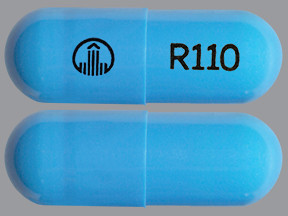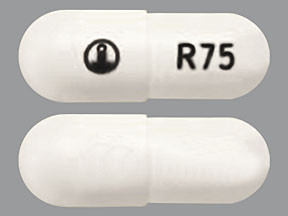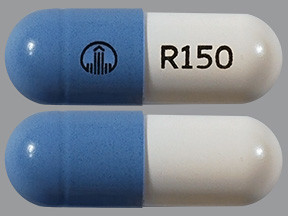DABIGATRAN - ORAL
PHONETIC PRONUNCIATION: (DA-bi-GAT-ran)
COMMON BRAND NAME(S): Pradaxa
GENERIC NAME(S): dabigatran etexilate mesylate
Uses
USES: Dabigatran is used to prevent stroke and harmful blood clots (such as in your legs or lungs) if you have a certain type of irregular heartbeat (atrial fibrillation). Dabigatran is also used to treat blood clots in the veins of your legs (deep vein thrombosis) or lungs (pulmonary embolism) and to reduce the risk of them occurring again. This medication may also be used to prevent these blood clots from forming after hip replacement surgery. Dabigatran is an anticoagulant that works by blocking a certain substance (a clotting protein called thrombin) in your blood. This helps to keep blood flowing smoothly in your body. Dabigatran should not be used to prevent blood clots from forming after artificial heart valve replacement. If you have had heart valve surgery, talk to your doctor about the best medication for you. Do not stop taking any medication, including dabigatran, without talking to your doctor first.
How to use DABIGATRAN - ORAL
HOW TO USE: See also Warning section. Read the Medication Guide and, if available, the Patient Information Leaflet provided by your pharmacist before you start taking dabigatran and each time you get a refill. If you have any questions, ask your doctor or pharmacist. Take this medication by mouth with or without food as directed by your doctor, usually twice a day. To prevent clots after hip or knee replacement surgery, take it as directed by your doctor, usually once a day. Avoid antacids within 24 hours after surgery, or dabigatran may not work as well. Swallow the capsules whole with a full glass of water (8 ounces/240 milliliters). Do not crush, chew, or break open the capsules. Doing so can release all of the drug at once, increasing the risk of side effects. Do not put this medication in a pill box or medication reminder box. It must be kept tightly closed in the original bottle (or blister package) to protect it from moisture. See also Storage section for more important details. The dosage is based on your medical condition, kidney function, response to treatment, and other medications you may be taking. Be sure to tell your doctor and pharmacist about all the products you use (including prescription drugs, nonprescription drugs, and herbal products). Use this medication regularly to get the most benefit from it. To help you remember, take it at the same time(s) each day. It is very important to take it exactly as directed. Do not increase your dose or take this drug more often than directed. Do not stop taking this medication without consulting your doctor.
Side Effects
Precautions
Interactions
Overdose
Images
Reviews
Faq for DABIGATRAN - ORAL
Dabigatran is an oral anticoagulant medication used to prevent blood clots and stroke in patients with atrial fibrillation (irregular heart rhythm) or after hip or knee replacement surgery.
Dabigatran works by inhibiting thrombin, an enzyme involved in blood clotting. By blocking thrombin, Dabigatran helps prevent the formation of blood clots.
The common side effects of Dabigatran include gastrointestinal symptoms like indigestion, upset stomach, nausea, and diarrhea. Bleeding is another potential side effect, though it is less common.
Dabigatran should be taken exactly as prescribed by your healthcare provider. It is usually taken twice daily with or without food. Swallow the capsules whole, and do not crush, chew, or open them.
If you miss a dose of Dabigatran, take it as soon as you remember. However, if it is almost time for your next scheduled dose, skip the missed dose and continue with your regular dosing schedule. Do not take a double dose to make up for a missed one.
It is generally recommended to avoid or limit alcohol consumption while taking Dabigatran. Alcohol can increase the risk of bleeding, which is already a potential side effect of the medication.
There are no specific dietary restrictions associated with Dabigatran. However, it is always important to maintain a balanced and healthy diet while taking any medication.
It is important to inform your healthcare provider about all the medications, including over-the-counter drugs and supplements, you are taking before starting Dabigatran. Some medications can interact with Dabigatran and increase the risk of bleeding or other side effects.
The duration of Dabigatran treatment depends on the condition being treated and your individual medical history. Your healthcare provider will determine the appropriate duration for your specific case.
Warning
WARNING: Do not stop taking dabigatran unless directed by your doctor. If you stop taking this medication early, you have a higher risk of forming a serious blood clot (such as a stroke, blood clot in the legs/lungs). Your doctor may direct you to take a different "blood thinning" or antiplatelet medication to reduce your risk. Get medical help right away if you have weakness on one side of the body, trouble speaking, sudden vision changes, confusion, chest pain, trouble breathing, pain/warmth/swelling in the legs. People taking this medication may bleed near the spinal cord after certain spinal procedures. Bleeding in this area can cause paralysis that lasts a long time or could become permanent. Ask your doctor about the benefits and risks before any spinal procedure. The risk of bleeding may be higher if you have a deformed spine, or have had spinal procedures/surgery before (such as epidural catheter placement, difficult epidural/spinal puncture), or are taking other drugs that can cause bleeding/bruising (including antiplatelet drugs such as clopidogrel, "blood thinners" such as warfarin/enoxaparin, nonsteroidal anti-inflammatory drugs-NSAIDs such as ibuprofen). Tell your doctor right away if you notice symptoms such as back pain, leg numbness/tingling/weakness, loss of control of the bowels or bladder (incontinence).
Disclaimer
IMPORTANT: HOW TO USE THIS INFORMATION: This is a summary and does NOT have all possible information about this product. This information does not assure that this product is safe, effective, or appropriate for you. This information is not individual medical advice and does not substitute for the advice of your health care professional. Always ask your health care professional for complete information about this product and your specific health needs.



No Reviews Yet